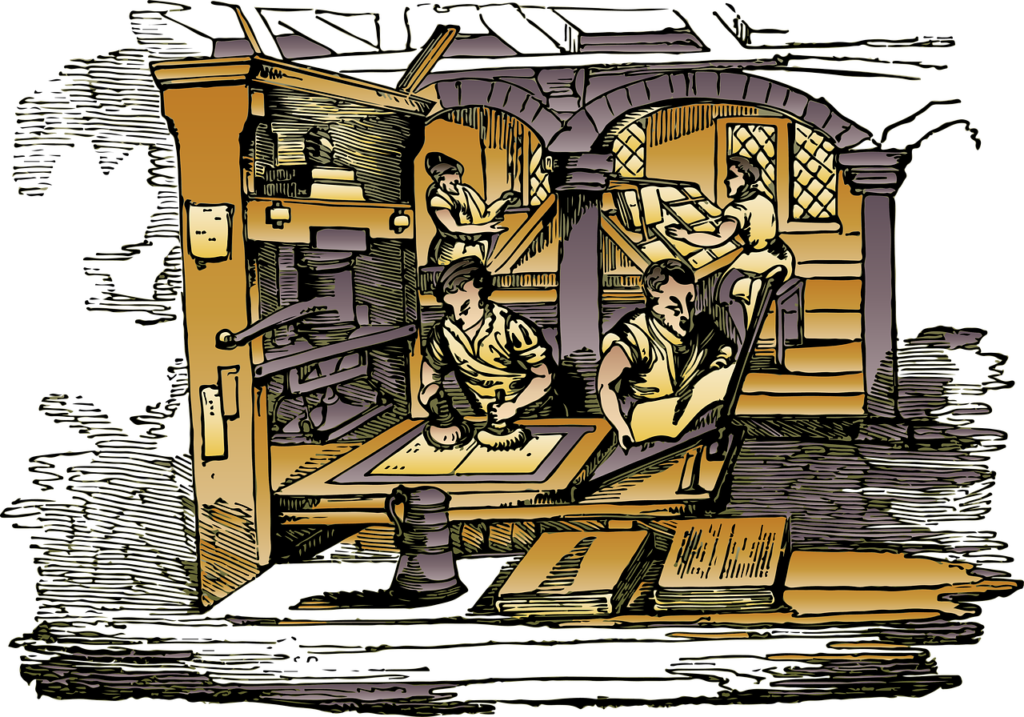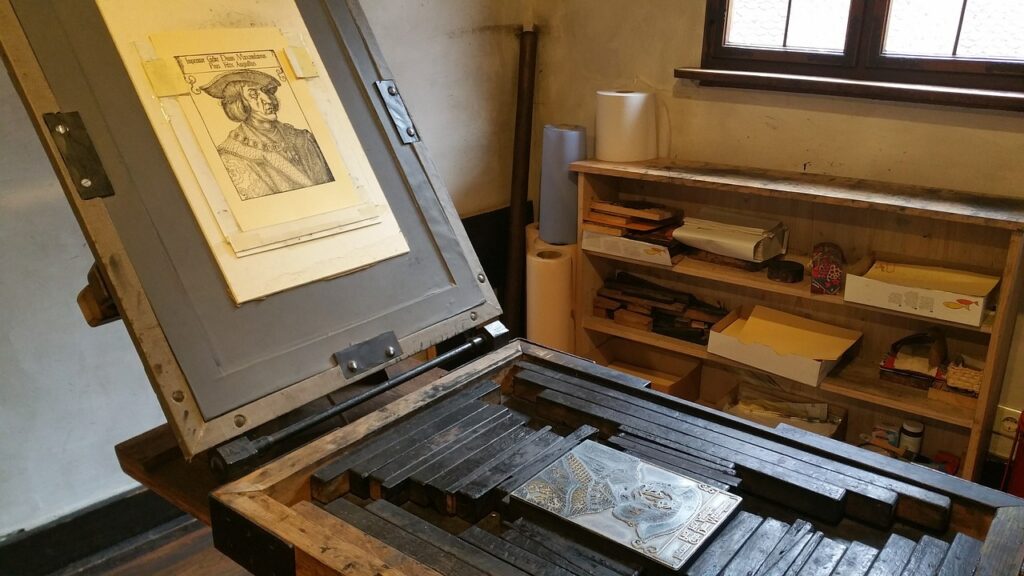
The history of book publishing is long and rich, dating back to ancient civilizations such as China, Egypt, and Greece. In these cultures, books were often handwritten and copies were made for royalty, scholars, and the wealthy.
In this exciting article, we’ll explore the wonderful history of book publishing through the ages.

A quick history of book publishing
During the Middle Ages, the invention of the printing press revolutionized the world of book publishing and made books more widely available to the public.
In the 15th and 16th centuries, the printing press was used to produce books in large quantities, including bibles and religious texts, as well as works of literature, science, and history. This era is considered the beginning of modern book publishing and saw the establishment of the first printing houses and booksellers.
During the Enlightenment in the 18th century, the history of book publishing expanded as more people became literate and demand for books increased. This was also a time of growth for libraries, which helped to make books more widely available to the public.
The industrial revolution in the 19th century saw further advancements in the printing process, making it easier and faster to produce books in large quantities.
In the 20th century, the rise of technology had a profound impact on the history of book publishing. The invention of the computer, the internet, and digital printing has changed the way books are produced, distributed, and marketed.

Today, books can be printed on demand, making it possible for publishers to produce smaller runs of specialized books, and for self-publishing authors to bring their work directly to the public.
In recent years, the world of book publishing has undergone major changes, with the rise of e-books and digital publishing. This has led to a shift in the way books are purchased and consumed, with more and more people turning to digital devices to read books. However, despite these changes, traditional print publishing remains a major industry, and many people still prefer the experience of reading a physical book.

Final thoughts
Throughout its history, book publishing has played an important role in shaping the world and spreading knowledge, ideas, and stories. As technology continues to evolve, it will be interesting to see how the world of book publishing continues to change and adapt.
However, one thing remains certain: the love of books and the desire to share stories will continue to endure.


